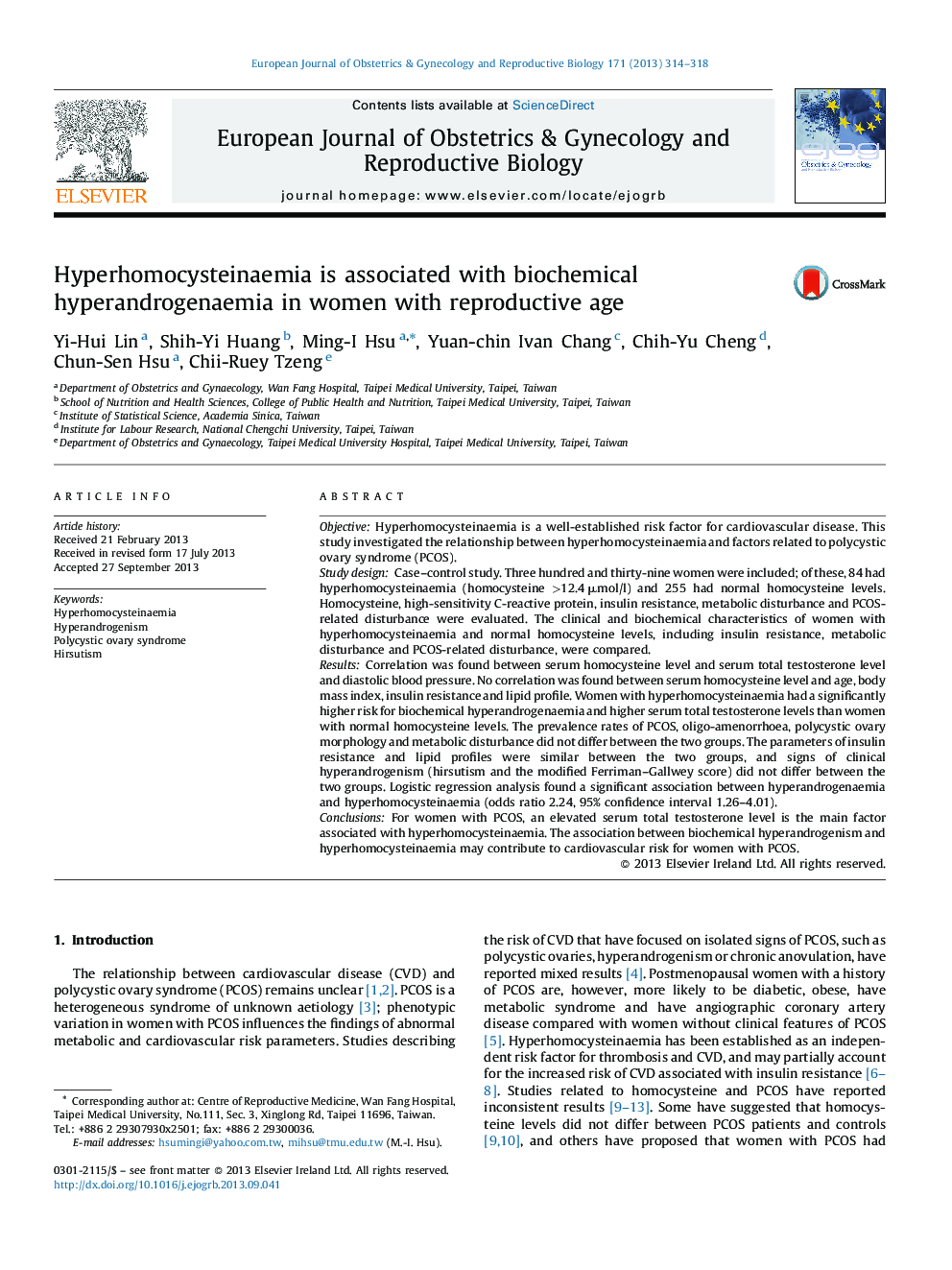| Article ID | Journal | Published Year | Pages | File Type |
|---|---|---|---|---|
| 3920179 | European Journal of Obstetrics & Gynecology and Reproductive Biology | 2013 | 5 Pages |
ObjectiveHyperhomocysteinaemia is a well-established risk factor for cardiovascular disease. This study investigated the relationship between hyperhomocysteinaemia and factors related to polycystic ovary syndrome (PCOS).Study designCase–control study. Three hundred and thirty-nine women were included; of these, 84 had hyperhomocysteinaemia (homocysteine >12.4 μmol/l) and 255 had normal homocysteine levels. Homocysteine, high-sensitivity C-reactive protein, insulin resistance, metabolic disturbance and PCOS-related disturbance were evaluated. The clinical and biochemical characteristics of women with hyperhomocysteinaemia and normal homocysteine levels, including insulin resistance, metabolic disturbance and PCOS-related disturbance, were compared.ResultsCorrelation was found between serum homocysteine level and serum total testosterone level and diastolic blood pressure. No correlation was found between serum homocysteine level and age, body mass index, insulin resistance and lipid profile. Women with hyperhomocysteinaemia had a significantly higher risk for biochemical hyperandrogenaemia and higher serum total testosterone levels than women with normal homocysteine levels. The prevalence rates of PCOS, oligo-amenorrhoea, polycystic ovary morphology and metabolic disturbance did not differ between the two groups. The parameters of insulin resistance and lipid profiles were similar between the two groups, and signs of clinical hyperandrogenism (hirsutism and the modified Ferriman–Gallwey score) did not differ between the two groups. Logistic regression analysis found a significant association between hyperandrogenaemia and hyperhomocysteinaemia (odds ratio 2.24, 95% confidence interval 1.26–4.01).ConclusionsFor women with PCOS, an elevated serum total testosterone level is the main factor associated with hyperhomocysteinaemia. The association between biochemical hyperandrogenism and hyperhomocysteinaemia may contribute to cardiovascular risk for women with PCOS.
